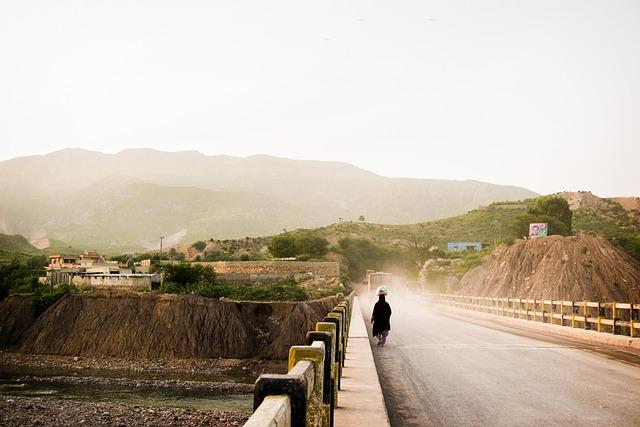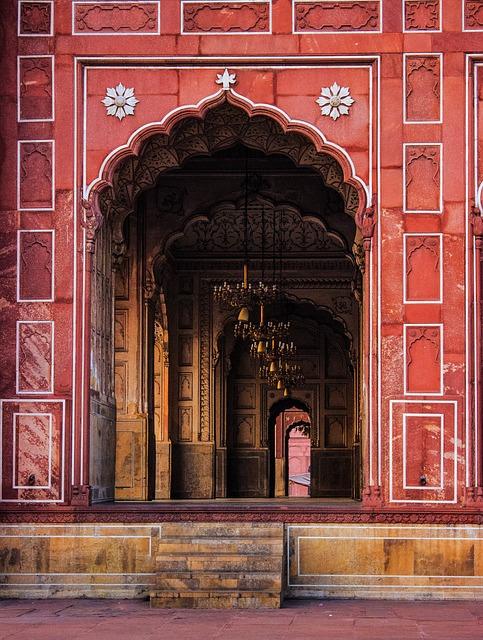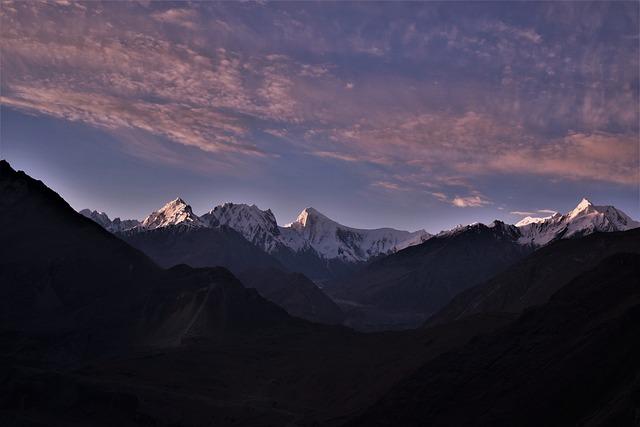Pakistan’s Role in Shaping Global Diplomacy and Relations
As the sun rises over the rugged landscape of the Himalayas and the sprawling plains of the Indus River, Pakistan stands at a unique geopolitical crossroads, a nation that has navigated the intricate webs of diplomacy with both resilience and adaptability. From its strategic location at the heart of South Asia to its rich tapestry of cultural heritage, Pakistan’s influence on global relations is profound yet often overlooked. In a world marked by shifting alliances and evolving power dynamics, this article delves into the multifaceted role Pakistan plays on the international stage—examining its historical legacies, regional engagements, and contributions to global governance. Through a neutral lens, we explore how this nation, despite its challenges, has emerged as a pivotal player in shaping contemporary diplomacy and redefining its position within the global arena, striving for a voice that resonates beyond its borders.
Understanding Pakistans Geographic Significance in Global Diplomacy
Pakistan occupies a pivotal position at the crossroads of South Asia, Central Asia, and the Middle East, making it a strategic player in international relations. Its proximity to major economic and political powers, such as China, India, and Iran, elevates its role in both regional and global diplomacy. The country serves as a vital corridor for trade routes, enabling access to energy resources and markets that are essential for economic growth. Geopolitical stability in Pakistan is crucial not just for its own citizens but also for surrounding nations. This dynamic is underscored by significant partnerships, including the China-Pakistan Economic Corridor (CPEC), which is a linchpin in the Belt and Road Initiative, aimed at enhancing connectivity and infrastructure across Asia.
Moreover, Pakistan’s military alliances and humanitarian efforts further underscore its influence on the global stage. Its collaboration with organizations such as the United Nations highlights its commitment to international peace and security, especially in relation to counter-terrorism efforts and disaster relief. The evolving relationship with western countries, particularly the United States, continues to shape diplomatic strategies in light of regional challenges. To understand Pakistan’s impact, consider the following aspects of its diplomatic engagement:
| Aspect | Impact on Diplomacy |
|---|---|
| Trade Routes | Enhances economic ties with global partners |
| Regional Security | Stabilizes neighboring countries through strategic alliances |
| Cultural Exchange | Builds soft power and mutual understanding |
| Military Cooperation | Ensures strategic partnerships bolster defense preparedness |

Navigating the Complexities of Pakistans Foreign Relations
Pakistan’s geographical location at the crossroads of South Asia, Central Asia, and the Middle East positions it as a significant player in global diplomacy. The nation’s foreign relations are characterized by a delicate balance of partnerships and rivalries, necessitating astute navigation through a complex landscape. Key elements influencing these relations include:
- Geopolitical Significance: Serving as a gateway to Central Asia, Pakistan plays a vital role in regional connectivity efforts, particularly through initiatives like the China-Pakistan Economic Corridor (CPEC).
- Security Alliances: Pakistan maintains a multi-faceted security partnership with China, while also grappling with its historical tension with India.
- Economic Considerations: Diplomatic efforts are often driven by economic interests, including foreign investment and trade agreements.
The interplay of these factors not only shapes Pakistan’s diplomatic engagements but also influences its stance on global issues such as climate change, counter-terrorism, and sustainable development. Furthermore, Pakistan is gradually repositioning itself within the context of changing global power dynamics, actively engaging with international organizations and complex trilateral relationships. Key initiatives include:
| Initiative | Description |
|---|---|
| CPEC | Enhances trade routes and energy supply, linking China to the Arabian Sea. |
| SAARC Participation | Strengthens ties within South Asia while addressing regional challenges. |
| UN Peacekeeping | Contributes troops to international peacekeeping missions, showcasing commitment to global stability. |

Leveraging Economic Partnerships for Enhanced Global Standing
In an increasingly interconnected world, the significance of effective economic partnerships cannot be overstated. By fostering strong diplomatic ties with key players in various regions, Pakistan can enhance its global standing and wield greater influence in international affairs. This can be achieved through strategic collaborations that focus on shared interests, mutual benefits, and integrated economic goals. Establishing these alliances not only bolsters trade and investment opportunities but also promotes cultural exchanges that enrich bilateral relations. Key areas of focus may include:
- Trade Agreements: Crafting beneficial trade deals to open markets and reduce tariffs.
- Investment Initiatives: Attracting foreign direct investment to stimulate economic growth.
- Technological Collaborations: Partnering with global leaders in technology to foster innovation.
Moreover, by leveraging platforms such as regional economic forums and international trade associations, Pakistan can amplify its voice on the global stage. Collaboration extends beyond mere economics; it encompasses regional stability through shared security initiatives and disaster management protocols. The following table illustrates potential partnerships that Pakistan could pursue for deeper strategic engagement:
| Partner Country | Focus Area | Possible Outcomes |
|---|---|---|
| China | Infrastructure Development | Increased investment in CPEC projects |
| Turkey | Defense Cooperation | Strengthened regional security ties |
| Saudi Arabia | Energy Sector | Diverse energy supplies and investments |

A Vision for the Future: Recommendations for Strengthening Diplomatic Engagements
To forge a path towards a more robust diplomatic future, Pakistan should prioritize the establishment of stronger multifaceted partnerships. Investing in educational and cultural exchange programs can enhance mutual understanding and foster people-to-people connections, which are crucial in today’s globalized world. Such initiatives could include:
- Scholarships for foreign students to study in Pakistan, promoting cultural ties
- Cultural festivals that celebrate diversity and engage with international communities
- Workshops and seminars focused on regional issues to facilitate dialogue and input from diverse stakeholders
Moreover, enhancing technological diplomacy can greatly improve Pakistan’s global standing. By harnessing digital platforms, Pakistan can engage in virtual diplomacy, opening avenues for real-time dialogue and collaborative projects with other nations. This could involve:
| Initiative | Description |
|---|---|
| Digital Forums | Regular online discussions on pressing global issues |
| Data Sharing Agreements | Collaborative research and data analysis with international partners |
To Conclude
As we navigate the intricate landscape of global diplomacy, it becomes evident that Pakistan plays a pivotal role, often acting as a bridge between diverse cultures, economies, and political agendas. With its strategic geographic location and rich history of trade, conflict, and collaboration, Pakistan has woven itself into the very fabric of international relations, influencing dialogues that extend beyond its borders.
In this multifaceted arena, Pakistan’s unique position offers both challenges and opportunities. As it continues to engage with global powers and regional partners alike, the nation holds the potential to foster new alliances and contribute to collective efforts aimed at addressing some of the world’s most pressing issues. Whether through mediation in conflicts, participation in regional initiatives, or hosting international forums, Pakistan remains an essential player on the world’s diplomatic stage.
As we reflect on Pakistan’s unfolding narrative within global diplomacy, it becomes clear that its actions and decisions will resonate far beyond its own territory, echoing in the halls of power from Washington to Beijing, and influencing the trajectory of international relations for years to come. Thus, as we look to the future, it is imperative to consider not only Pakistan’s past contributions but also its evolving role in shaping a more interconnected and cooperative world. After all, in the realm of diplomacy, every voice counts, and every nation—big or small—has the capacity to make its mark on history.



